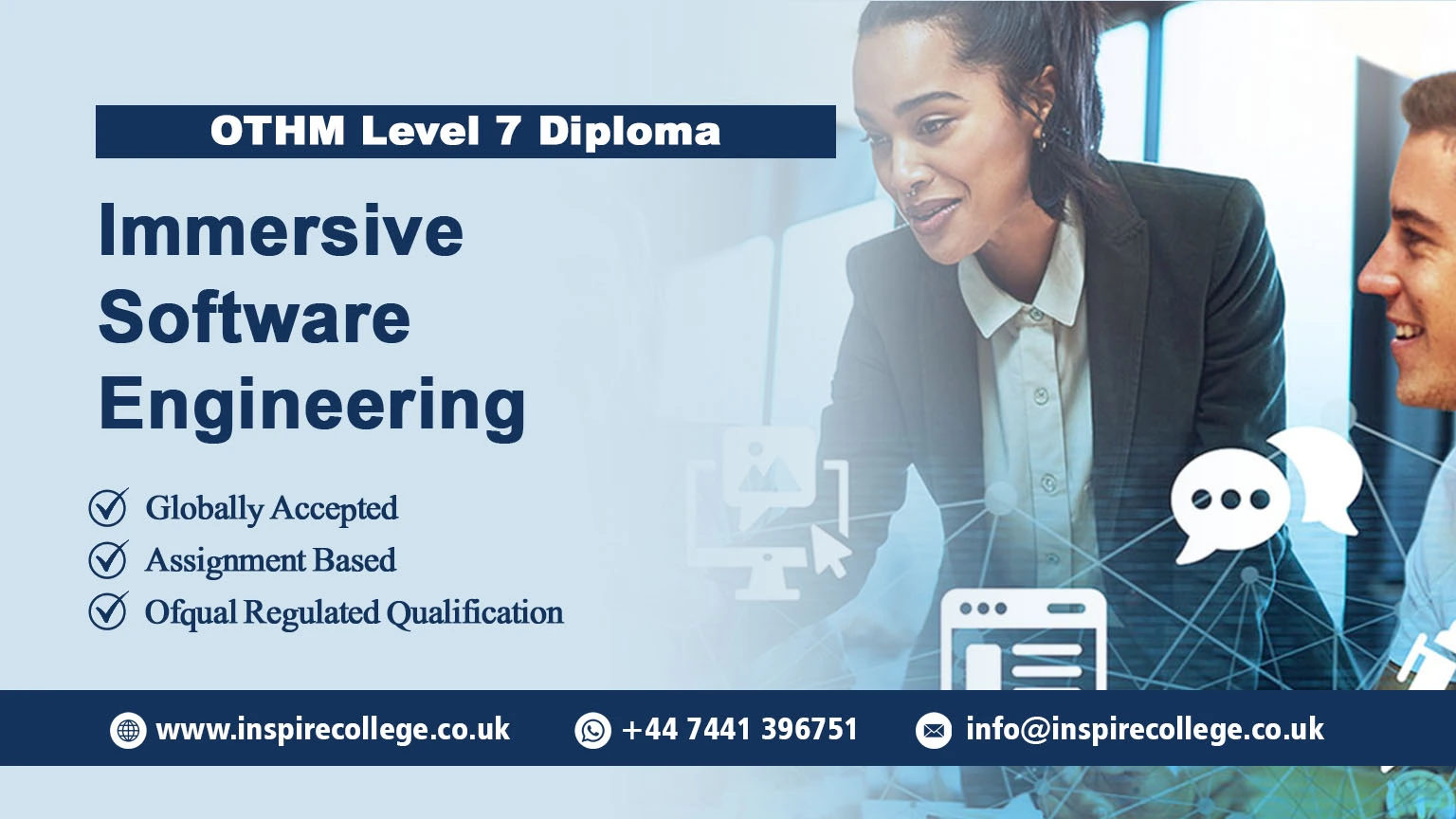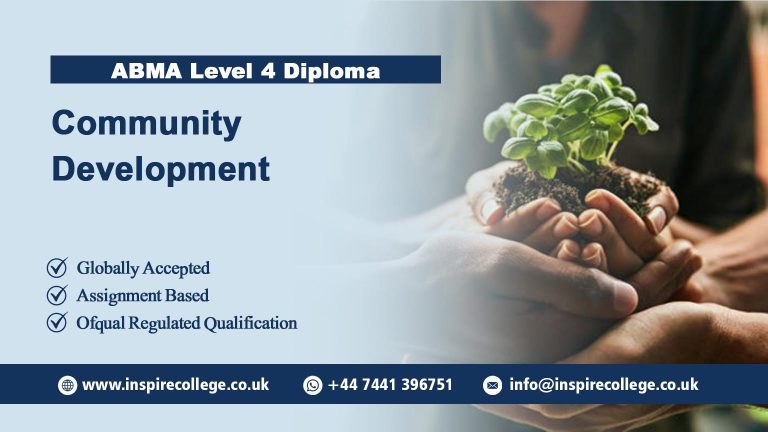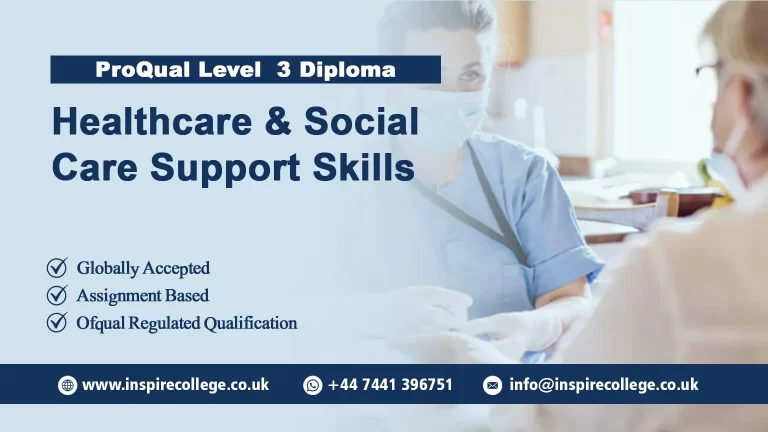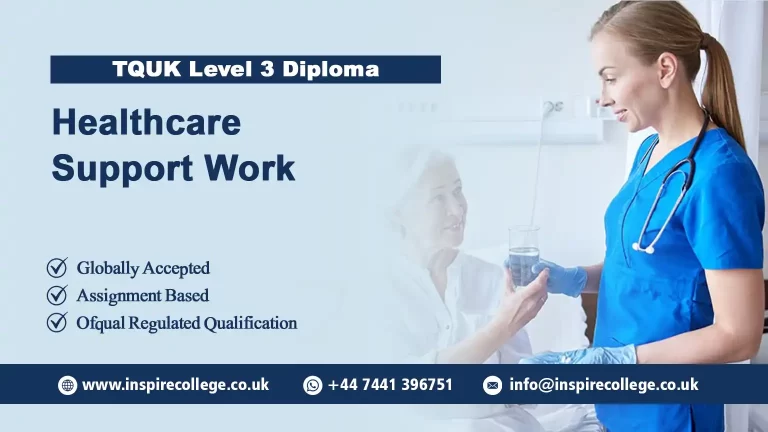
OTHM Level 7 Diploma in Immersive Software Engineering
In today’s rapidly evolving technological landscape, the OTHM Level 7 Diploma in Immersive Software Engineering stands out as a premier qualification for professionals aiming to excel in the cutting-edge field of immersive technologies. This diploma is designed to equip individuals with the advanced skills and knowledge required to develop and manage immersive software solutions, including virtual reality (VR), augmented reality (AR), and mixed reality (MR) applications.
The OTHM Level 7 Diploma in Immersive Software Engineering provides a comprehensive curriculum that covers both the theoretical and practical aspects of immersive technology development. Students will delve into the fundamental principles of software engineering, focusing on the unique challenges and opportunities presented by immersive environments. The course content includes advanced programming techniques, user experience (UX) design for immersive platforms, and the integration of sensory inputs to create engaging and interactive experiences.
One of the key benefits of this diploma is its emphasis on real-world applications. Participants will have the opportunity to work on industry-relevant projects, gaining hands-on experience in designing and implementing immersive solutions. This practical approach ensures that graduates are not only proficient in theoretical concepts but also adept at applying their skills to solve complex problems in professional settings.
The OTHM Level 7 Diploma in Immersive Software Engineering is ideal for individuals seeking to advance their careers in technology sectors such as gaming, simulation, training, and entertainment. By completing this diploma, professionals will be well-positioned to take on roles such as immersive software engineers, VR/AR developers, and project managers for immersive technology projects.
For those looking to stay ahead in the competitive field of software engineering, the OTHM Level 7 Diploma in Immersive Software Engineering offers a valuable opportunity to gain expertise in one of the most exciting areas of technological innovation. With its blend of advanced technical training and practical experience, this diploma is a powerful credential for advancing one’s career and making a significant impact in the world of immersive technology.
Join us as we redefine the boundaries of possibility and embark on a journey into the future of immersive technology. The future is here, and it’s waiting for you to explore.
For entry onto the OTHM Level 7 Diploma in Immersive Software Engineering qualification, learners must possess:
- An honours degree in a related subject or a UK level 6 diploma or an equivalent overseas qualification
- Mature learners with management experience (learners must check with the delivery centre regarding this experience before registering for the programme)
- Learner must be 21 years old or older at the beginning of the course.
- English requirements: If a learner is not from a majority English-speaking country must provide evidence of English language competency.
Mandatory Units
The OTHM Level 7 Diploma in Immersive Software Engineering consists of 6 mandatory units for a combined total of 120 credits, 1200 hours of Total Qualification Time (TQT) and 600 Guided Learning Hours (GLH) for the completed qualification.
Mandatory units
Learning outcomes for OTHM Level 7 Diploma in Immersive Software Engineering
Security Engineering
- Be able to analyse and evaluate the security of systems and web applications architecture.
- Be able to implement system hardening techniques.
- Be able to apply encryption techniques to secure data.
- Be able to understand and implement data security measures including identifying and mitigating social engineering attacks.
- . Be able to use tools and standards for security engineering.
Software Programming Principles and Practices in Java I
- Understand the importance of programming in the current world
- Understand why java is called a portable language
- Understand how data is stored and processed
- Understand about arithmetic and Boolean operators
- Be able to understand multiple conditional statements and breaking out of them
- Understand the usage and importance of loops and functions
- Introduction to multiple data storage types
- Introduction to classes and objects
Agile Project Management
- Be able to understand the fundamentals of project management and the role of project manager
- Be able to understand traditional project management with Waterfall SDLC (software development life cycle)
- Be able to understand & apply business agility in the context dynamic market changes
- Be able to understand & apply scrum framework to build IT products
- Be able to attain knowledge required to perform roles like scrum master, product owner & developers
- Be able to understand & leverage kanban to optimize the flow of value
- Be able to understand & leverage product mindset to build customer centric products
- Be able to understand & demonstrate knowledge of agile planning & estimation
- Be able to understand & demonstrate team dynamics within an agile team
- Be able to understand & demonstrate scaling agile to build complex products with large teams
Cloud Computing & DevOps
- Be able to understand and implement continuous integration and continuous delivery process and techniques
- Be able to understand, design and implement distributed systems on cloud.
- Be able to understand docker container and implement container orchestration using Kubernetes
- Be able to use tools and standards for Linux system fundamentals, command line interface, user/group management.
Database & SQL Programming
- Understand data and its storage importance, traditional storage systems and its challenges, understand importance of modern relational database and management systems (RDBMS)
- Understand the relational database installation and configuration, role of client and DBMS server. Understand basics of SQL programming language to communicate with relational database and management systems (RDBMS), understand relational table structures and SQL Data Definition Language (DDL)
- Understand various data manipulation techniques, queries to manipulate data – SQL data manipulation language (DML), understand database transactions and use of SQL Transaction Control Language (TCL)
- Understand data retrieval techniques, data transformations, SQL commands to query database (DQL), understand data summarisation and its support in SQL program
- Understand how to query metadata, understand significance of data quality and data auditing, RDBMS techniques to enforce data quality and data auditing.
- Understand the importance of data access control, security of sensitive data and SQL commands to enforce data access control and security
Web Designing
- Understand what the building blocks of a web page and basics needed to design it
- Understand the basics of CSS and different styles and how to integrate CSS with Html
- Understand CSS rules and their order
- Understand and implement tables and lists in HTML with examples using CSS
- Understand user input properties of HTML
- Introduction to DOM
- Introduction to Javascript and its uses
- Demonstrate basic JS properties and functions.
The OTHM Level 7 Diploma in Software Engineering caters to a diverse range of individuals who aspire to advance their careers and expertise in the field of software engineering. This course is particularly well-suited for:
- Software Engineers and Developers: Experienced professionals in the software engineering field who wish to deepen their technical knowledge, broaden their skill set, and stay abreast of emerging technologies and industry best practices.
- Computer Science Graduates: Recent graduates with a degree in computer science or related disciplines who seek specialized training and practical experience in software engineering to kickstart their careers in the industry.
- IT Professionals: IT professionals with a background in programming, database management, or system administration who aim to transition into roles focused on software development, architecture, or project management.
- Technology Enthusiasts: Individuals passionate about technology and software development who wish to expand their understanding of software engineering principles, programming languages, and software development methodologies.
- Career Changers: Professionals from non-technical backgrounds who are interested in transitioning into the software engineering field and are willing to acquire the necessary technical skills and knowledge through structured education and training.
- Entrepreneurs and Innovators: Entrepreneurs, startup founders, and innovators who want to develop technical proficiency in software engineering to build and launch innovative software products, platforms, or solutions.
- Project Managers and Team Leads: Project managers, team leads, and technical leads who desire a deeper understanding of software development processes, Agile methodologies, and DevOps practices to effectively manage software projects and teams.
The OTHM Level 7 Diploma in Software Engineeringake a meaningful imive positive change within the healthcare and social care sectors.
Future Progression
Upon completion, learners of the program can advance in their careers and/or pursue further academic endeavors. Given the accreditation and regulation by Ofqual (Office of the Qualifications and Examinations Regulation), learners may qualify to seamlessly transition to master’s top-up programs at various universities in the UK and overseas, often with advanced standing.
Register Now
FAQs for OTHM Level 7 Diploma in Immersive Software Engineering





